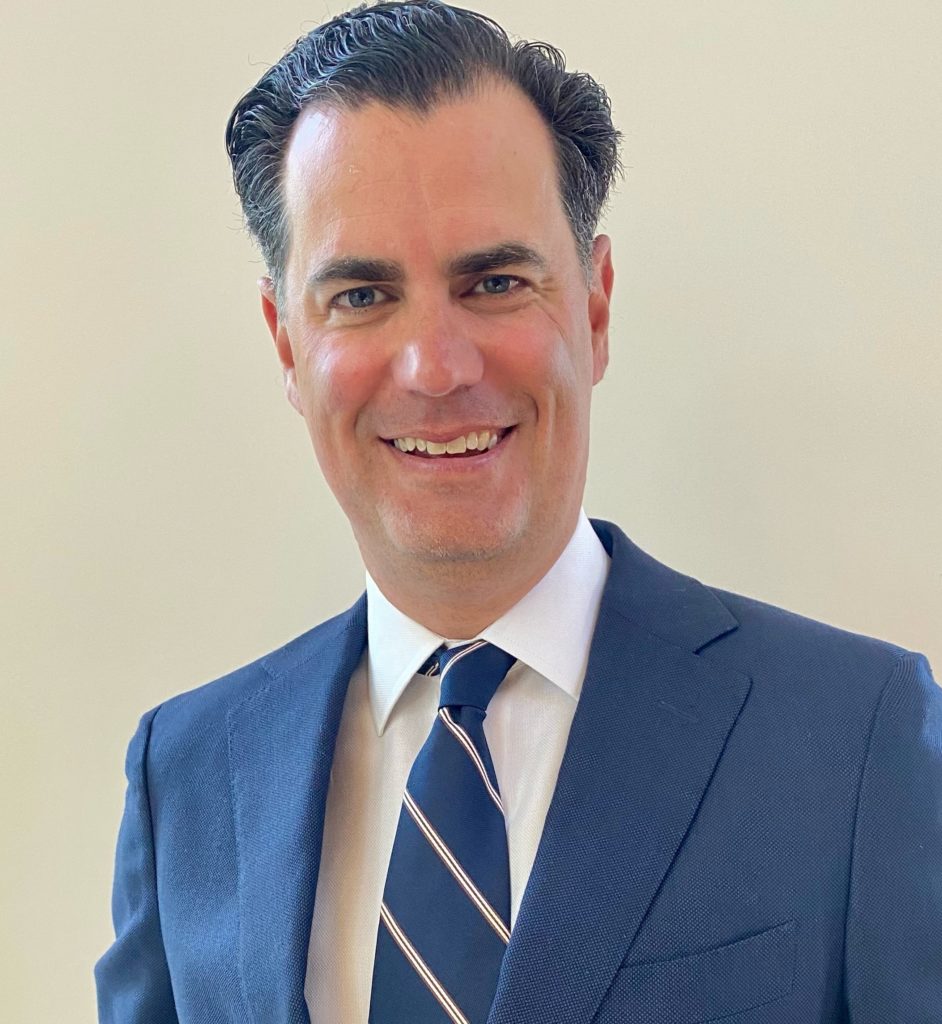Sign up for IFA SmartBrief today, free.
The past two years have presented unique challenges, with business owners managing the impact of the pandemic and, more recently, elevated inflation. Matthew Haller, president and CEO of the International Franchise Association, discusses the growth outlook for franchising, the group’s advocacy efforts and the advantages of franchised businesses.
Could you discuss the impact of the pandemic on franchising? It has of course caused tremendous disruption, and yet some people have more savings than they did before. Is there room for expansion?

The COVID-19 pandemic was challenging for franchises, as it was for virtually every business in the US, but we saw an impressive rebound in 2021, which we expect to continue in 2022.
There are a few reasons for that: One, the federal government supported small and local business owners with the Paycheck Protection Program (PPP) to get them through the worst of the pandemic, and two, the franchise business model enables small-business owners to lean on their national brand for support and to learn from others about the innovative ways they are adapting to the new environment. We saw an explosion of new models for takeout and delivery that may have started in one location but were able to be scaled on a nationwide level. In addition, franchising gives entrepreneurs a partnership with and guidance from business leaders who have more experience with handling severe disruptions like what we saw in 2020. Because of that, franchises have more advantages in their recovery than the average independent business might. As we saw in 2021, that resulted in very impressive growth last year with franchising helping lead the economic recovery.
Still, there are some sectors and areas of the country that have been impacted disproportionately hard, whether from slower reopening or industries that haven’t fully recovered. We are still pushing Congress for targeted relief for these sectors. There are some headwinds in that growth – inflation and the labor shortage are probably the most obvious – but we still expect the strength of the recovery to overcome those headwinds to post an additional upward trend, even if it’s not quite as steep as we saw last year.
How has the changing employment situation — the so-called Great Resignation in particular — affected the franchising industry?
The labor shortage has had a significant impact on the franchising sector. Currently, 4 out of 5 franchise systems are experiencing a labor shortage and impacted growth as a result, and the availability of qualified labor is an even bigger challenge. IFA and FRANdata recently teamed up to produce a first-of-its-kind study looking at the effects of the labor shortage on franchising, and it reveals that qualified labor is the No. 1 challenge facing small-business owners across all geographic areas and sectors. More importantly though, the study showcases the resilience of the business model and the ways franchisors are helping their owners adapt to the changes.
At the same time, the Great Resignation has had some unexpected benefits for the franchise industry, what we like to think of as a “Great Reimagination” of the kind of careers Americans want to build for themselves. Across the country, people are looking at their 9-to-5 job and realizing they want the independence and self-management that opening their own business provides, but maybe they’re concerned about lack of brand recognition, or they don’t feel they know enough about the nuts and bolts of business ownership. While not all franchises are created equal in terms of the type of and quality of support they offer to their franchisees, generally speaking, the franchise model addresses these concerns by offering a partnership with a brand, plus training and support in exchange for upfront and ongoing fees.
How does the current environment compare for franchised as opposed to nonfranchised businesses?
Franchised businesses have a number of strengths and benefits not experienced by other independent businesses, especially important in the current economic uncertainty. First, a franchised business has the support and name recognition of a national brand. The partnership, for example, gives entrepreneurs access to employee training, new technology to improve efficiency and customer satisfaction, and support with efforts to improve recruitment and retention for new employees. Plus, franchises on average pay higher wages, up to 3.4% higher than nonfranchises, and offer more generous benefits and leave than their independent counterparts. The clear upward mobility in franchise businesses also encourages employees to work towards promotions and advancement within the company. Lastly, you always have a built-in network of other business owners in your system to share best practices and common experiences with who are likely facing or have faced the same questions or challenges you are facing. More than ever, the pandemic has shown us how resilient the business model is and its advantages when navigating uncertainty.
How is IFA advocating on behalf of franchising in Washington? What does the industry need from lawmakers and regulators?
IFA advocates for policies in Washington that allow every level of the franchise model to hire more people, expand their businesses, and reach more customers with great products and services – and protect our members from policies that would be detrimental to the business model. Our members are the experts on the impact these policies could have, so we help connect them with their representatives and senators to explain how policy proposals could help or hurt their businesses.
We recently spearheaded an effort to block the nomination of David Weil to [lead the Wage and Hour Division at] the Department of Labor, educating lawmakers on how his record of policies would harm the franchise business model. Thousands of franchisees asked their senators to reject Weil’s nomination, and after 15 months of advocacy, Weil’s nomination was rejected on a bipartisan basis, with 53 senators voting against his confirmation. It was a hopeful sign that in the post-pandemic period, lawmakers are willing to listen and give franchises what they need, which is support for the business community. Punitive policies – like expanded joint-employer regulations – only discourage growth through franchising.`
Which franchise business sectors are poised for growth?
Every sector of the industry is poised for growth in 2022, which is great news for entrepreneurs and employees. In terms of economic output, we expect the personal services sector – gyms, movie theaters, hair salons and more – to see the most impressive growth at a 10.5% increase over 2021. That will also mean an increased demand for more establishments, and we project over 3% growth in the number of personal services franchisees across the country.
As Americans really pick up their travel itineraries again, we expect the lodging sector to increase their employment by nearly 7% over 2021. Additionally, with the housing market hot and many companies returning to offices, we expect the commercial and residential services sector to continue to need to expand the number of establishments by almost 3%, compared to an average growth of 2.2% across all sectors.
There will also be regional differences, and we foresee that the states with the most franchise growth in 2022 will be in the Mountain West and in the Southeast, with Texas, Florida and Arizona rounding out the top three.
What does elevated inflation mean for franchising? Are there other economic factors that are having a major impact?
Inflation is having a challenging impact on franchises as much as it is on other independent businesses. The increased cost in the supply chain, from products themselves to transportation from high gas prices, combined with the pressures to raise wages to keep employees from experiencing a de facto pay cut are just a few of the calculations business owners are having to make. They also must decide how much their customers are willing to bear price increases. This is creating headwinds in the upward trajectory of franchise growth in 2022, but it’s not the only factor at play.
Franchises are also experiencing pressures from policymakers – local, state and federal – that would undercut the business model, and that’s creating additional barriers in growth and expansion. Still, franchising is a proven business model, one that increases access to entrepreneurship for millions of Americans who might otherwise not experience it, so more fruitful partnerships with policymakers would only increase the benefits to employees, employers and franchisors alike.
This interview was edited and condensed.
_____________________________________________________
If you liked this article, sign up for SmartBrief’s free email newsletter from the International Franchise Association. It’s among SmartBrief’s more than 250 industry-focused newsletters.
